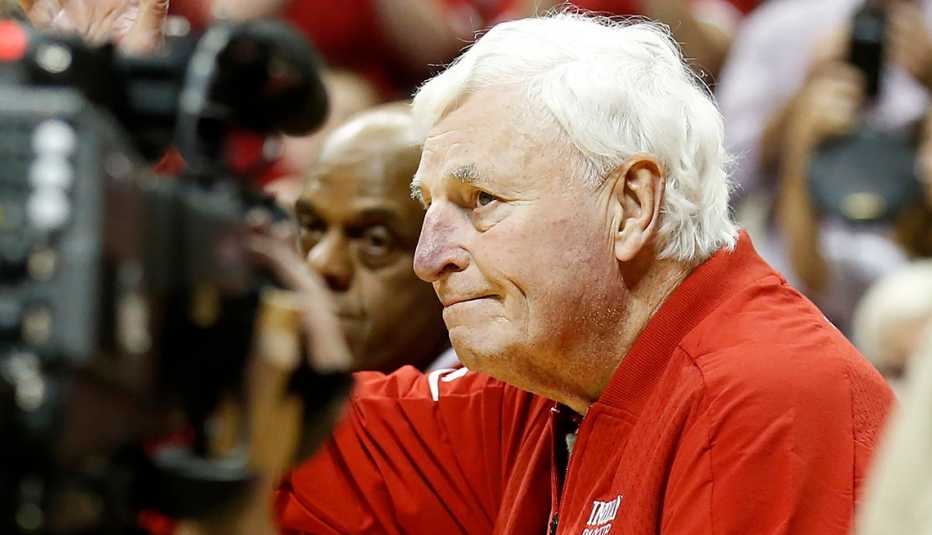AARP Hearing Center


As he patrolled the sideline, Bob Knight displayed both his coaching brilliance and his uncontrolled rage.
The legendary college basketball coach motivated and empowered his players well enough to win three NCAA championships with Indiana (1976, 1981, 1987).
Yet, that same coach also bullied his players with verbal outbursts and old-school discipline.
Knight died at age 83 on Wednesday, his family announced on his website, leaving behind a complicated legacy that includes both his coaching brilliance and his countless outbursts.
Knight became one of college basketball’s most iconic coaches both for his achievements and for how he influenced the game. He set records for most wins in an NCAA Division I men’s program (902; currently sixth) and managed the last undefeated men’s team in NCAA Division I basketball (1976). He modernized the motion offense that emphasizes setting screens and quick passes to create open shots, concepts that both college basketball and NBA teams currently embrace. He developed countless players who also eventually became influential coaches in both the NCAA and the NBA. He achieved stellar results, while ensuring strong graduation rates and avoiding any academic or recruiting violations.
Yet Knight also became one of college basketball’s most polarizing coaches for his abrasive behavior. He once threw a chair across the court to protest the game’s officiating (1985). He grabbed the throat of player Neil Reed after becoming upset with his play in practice (1997). Indiana suspended Knight in 2000 after a video validated Reed’s allegations, then fired Knight months later for grabbing the arm of a freshman student who approached him on campus. Through his head coaching stops at Army (1965-71), Indiana (1971-2000) and Texas Tech (2001-2008), Knight belittled reporters’ questions that he considered overly critical, misinformed or lazy.
So, what should we make of Knight’s legacy?
It seems easy to contextualize his Hall of Fame credentials. It also seems difficult to rationalize his erratic behavior. For better and for worse, Knight became known as “The General” because of his absolute command of his craft and how he managed people.





































































More From AARP
Suzanne Somers Transformed from Sitcom Sex Symbol to Fitness Icon and Best-Selling Author
After being fired for fighting for equal pay, the ‘Three’s Company’ actress had the last laugh
Dick Butkus: NFL Legend and Ultimate Bear
The Chicago linebacker was later as well-known for his acting and TV commercials as his gridiron playBrooks Robinson: A Third Basemen for the Ages
Remembering the longtime Baltimore Orioles Hall of Famer